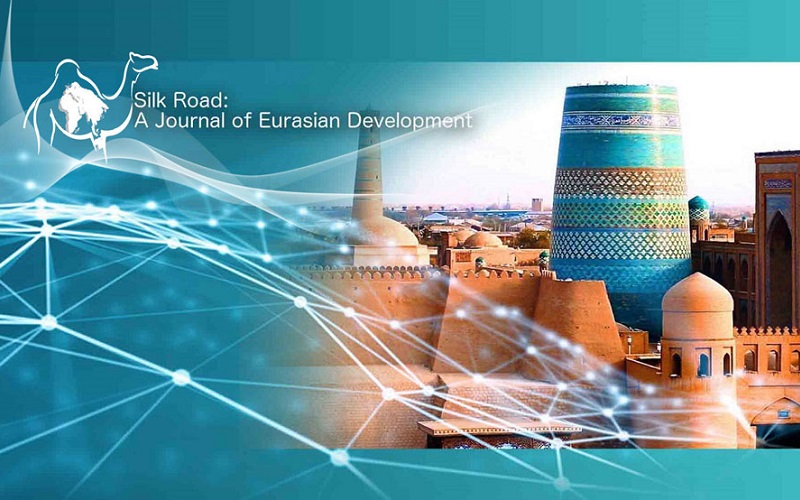Read latest policy briefs >>>
Research and Outreach Projects
CPRO has five additional research / outreach projects under development for 2022
POST-COVID Inequality in Central Asia sponsored by the Central Asia Regional Cooperation (CAREC) Institute
Title: Post-COVID - Induced Inequalities: Education, Health Services, Digital Access, and Female Labor Force Participation
The objective of the research is to better understand the patterns in social inequality among the Uzbek society that might have emerged due to the COVID-19 pandemic. We study impacts on health services, education, digitization, and women and employment. Inequalities will also consider gender, rural regions, and poverty. The study will employ a mix of quantitative and qualitative data analysis methods and present the findings using narratives, tables, and figures. The study aims to provide contextual options for addressing disparities triggered by the COVID-19 pandemic. The study will be published with parallel studies from Pakistan, Azerbaijan, and Kazakhstan.
February 2022 to September 2022.
Workplace discrimination in Uzbekistan sponsored by the United Nations Population Fund
Title: Businesses for Gender Equality in the Workplace
To describe the experiences and impact on workplace performance of workplace discrimination and inequality in private companies in Uzbekistan. Qualitative in-depth interviews with approximately 20-25 HR managers and a large-scale quantitative survey (1500-2000 respondents) with employees from a range of private companies across the Tashkent region. Research findings and case studies with the best practices will be disseminated across the stakeholders, business organizations, as well as a guidance document with the practical recommendations on how corporate policies can be adjusted to promote gender equality and family-friendly environments, and eliminate violence against women. Upon completion of the project, it is planned to establish a network of businesses committed to undertaking actions and adjusting corporate policies in line with the provided recommendations.
September 2021 to July 2022.
Advisory Support for Green Recovery. Sponsored by the Organization for Economic Cooperation and Development (OECD)
Title: Advisory services for greening COVID-19 economic recovery measures in Uzbekistan
The object of this research is to support to the Ministry of Economic Development and Poverty Reduction in Uzbekistan’s t COVID-19 transition to a green recovery. The project has four main deliverables:
i. Assess stakeholders and capacity needs for green recovery and transition;
ii. Assess COVID 19 response measures and potential greening, inclusivity and economic implications.
iii. Identify best practices in green economy and green indicators and,
iv. facilitation, networking and communication with stakeholders for the green recovery/transition.
September 2021 to April 2022.
Agriculture Price & Market Analysis. Sponsored by the Food & Agriculture Organization of the UN
This research supports the technical implementation of the Agriculture Price and Market Information System and related policy analysis for selected agricultural value chains in Uzbekistan. There are three main outputs:
i.Collect, analyse and disseminate price information for selected value-chains
ii.Monitor commodity market development and
iii. Produce knowledge products, regional cooperation and agricultural outlook report.
December 2021- October 2022.
Uzbekistan Agri-Food Development Strategy 2020-2030 sponsored by the European Union (EU) implemented by DT-Global, international development firm.
Title: EU assistance for Uzbekistan Agri-Food Development Strategy 2020-2030
This project aims to contribute to the achievement of the 2030 Vision of the Agri-Food Sector (presented in the Uzbekistan Agri-Food Development Strategy 2020-2030), which aims to develop a competitive, market, and export-oriented Uzbekistan Agri-food Sector. The primary role of CPRO is to support research, capacity development, and advise the government. This in turn will increase farm income, create new jobs, enhance food security, and ensure the sustainable use of natural resources. To do so, the project will accompany the Government of Uzbekistan in the implementation of the sector reform, to which the EU is providing an additional €33 million through its Budget Support modality.
March 2021 – January 2025
Analysis of the Sericulture Value Chain in Uzbekistan Sponsored by the Food and Agriculture Organisation of the United Nations (FAO)
Research undertaken for the Uzbekistan Silk Association. The Objective was to carry out an assessment of the Uzbekistan silk value-chain segments to strengthen the competitiveness and investment attraction of the sericulture sector.
August-December 2020.
Assessment of the impact of COVID-19 on agriculture and food security Sponsored by the Food & Agriculture Organization of the UN.
Implemented for the Leibniz Institute of Agricultural Development in Transition Economies (IAMO). This research studied the impact of COVID-19 on agriculture, food and rural areas in Uzbekistan.
December 2020 - March 2021.
Agriculture Information and Statistics System Sponsored by European Union (EU) implemented through LINPICO international development firm.
This initiative assessed the Agriculture Information and Statistics System of Uzbekistan to inform the design of a strategy on Uzbekistan Agriculture Market Information and Statistics System (UZAMISS).
February- May 2020.
About Us
CPRO-Team






CPRO Advisory Board






Uzbekistan Futures Research Partnership
Currently many development agencies are struggling to identify and support quality local research. Ideally, the Uzbekistan Futures program will provide a platform for exchange, quality, and funding of timely research. We envision a small to medium size social science grant facility where WIUT orchestrates more responsive research that is relevant to addressing local questions yet high enough in quality to be published internationally.

Research
Human Capital & Decent Work
WIUT researchers have been examining issues around agricultural labor, the national education system, skills and workplace productivity for years. The country’s national employment strategy highlights the importance of jobs and growing new and better work for its people.
